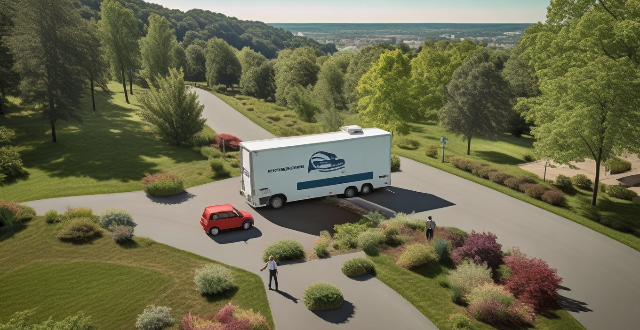The text offers a comprehensive guide on how individuals can contribute to improving air quality in their community. It outlines five major steps: reducing vehicle emissions, energy consumption, household waste, planting trees and vegetation, and advocating for cleaner energy policies. Each step includes several sub-actions such as carpooling, using public transportation, maintaining vehicles, using energy-efficient appliances, installing solar panels, recycling, composting, reducing plastic use, creating green spaces, supporting renewable energy policies, pushing for stricter emission standards, and educating others about the importance of reducing air pollution. The article emphasizes the significance of collective effort in protecting public health and reducing the impacts of climate change.

Introduction
Air pollution is a major environmental issue that affects the health and well-being of people all over the world. It is caused by a variety of sources, including transportation, industry, and household activities. Improving air quality in our communities is essential for protecting public health and reducing the impacts of climate change. In this article, we will discuss some steps individuals can take to improve air quality in their community.
Steps to Improve Air Quality in Your Community
1. Reduce Vehicle Emissions
Carpool or Use Public Transportation
Carpooling or using public transportation can significantly reduce the number of cars on the road, which in turn reduces emissions. If you have to drive, try to combine errands into one trip to reduce the amount of time your car is on the road.
Maintain Your Vehicle
Regular maintenance of your vehicle can help reduce emissions. This includes regular oil changes, keeping your tires properly inflated, and replacing air filters as needed.
Drive Less
Consider walking, biking, or taking public transportation for short trips instead of driving. If you live close enough to work or school, consider walking or biking instead of driving.
2. Reduce Energy Consumption
Use Energy-Efficient Appliances
When purchasing appliances, look for those with high energy efficiency ratings. This includes refrigerators, washing machines, and other household appliances.
Install Solar Panels
Solar panels can be installed on rooftops to generate electricity for homes and businesses. This not only reduces reliance on fossil fuels but also helps reduce greenhouse gas emissions.
Switch to LED Light Bulbs
LED light bulbs use less energy than traditional incandescent bulbs and last longer. Switching to LED bulbs can help reduce energy consumption and lower electricity bills.
3. Reduce Household Waste
Recycle
Recycling helps reduce the amount of waste that ends up in landfills, where it can release harmful gases into the atmosphere. Make sure to recycle paper, plastic, glass, and metal products.
Compost
Composting food scraps and yard waste can reduce the amount of organic matter that ends up in landfills. Compost can also be used as a natural fertilizer for gardens and plants.
Reduce Plastic Use
Reducing plastic use can help reduce the amount of plastic waste that ends up in landfills and oceans. Consider using reusable bags, water bottles, and containers instead of disposable plastic products.
4. Plant Trees and Vegetation
Plant Trees
Trees absorb carbon dioxide from the atmosphere during photosynthesis, helping to reduce greenhouse gas emissions. Planting trees in your community can also provide shade and improve air quality by trapping pollutants.
Create Green Spaces
Creating green spaces such as parks and gardens can help improve air quality by providing areas for plants to grow and absorb pollutants. These spaces also provide recreational opportunities for community members.
5. Advocate for Cleaner Energy Policies
Support Renewable Energy Policies
Advocate for policies that promote renewable energy sources such as wind and solar power. These sources of energy produce little to no emissions compared to fossil fuels.
Push for Stricter Emission Standards
Advocate for stricter emission standards for vehicles and industries in your community. This can help reduce the amount of pollutants released into the air.
Educate Others
Educate others about the importance of reducing air pollution and ways they can contribute to improving air quality in their community. Raise awareness about the health risks associated with poor air quality and encourage others to take action.